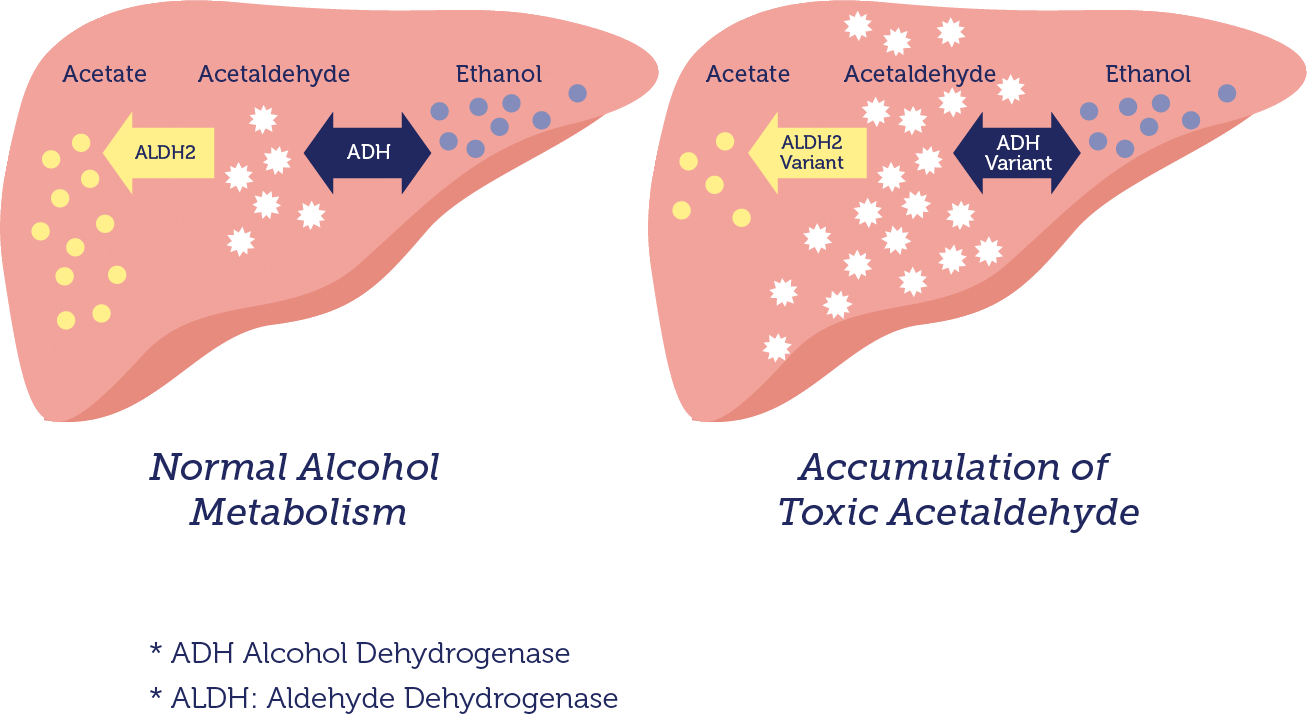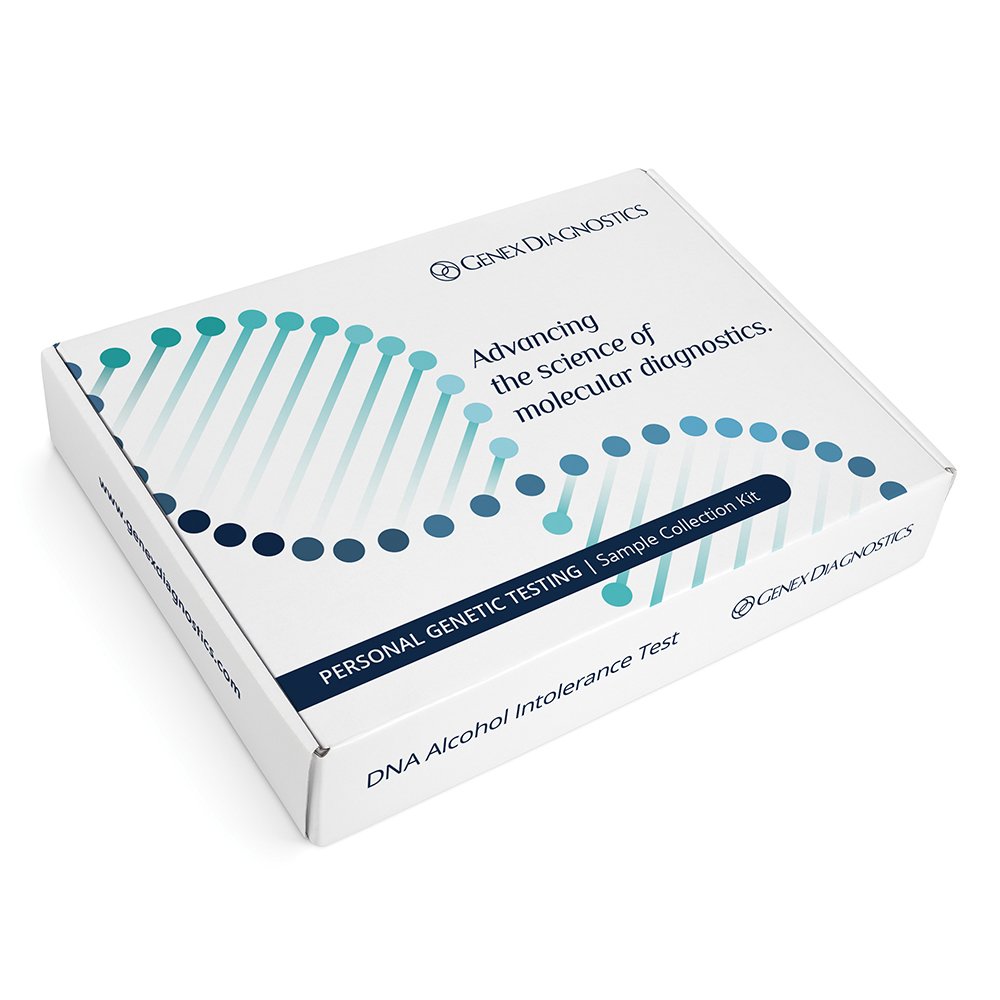Detailed Description
The majority of the alcohol (aka the chemical ethanol) that enter our body is cleared via a two-step process involving two enzymes.
In the first step of alcohol metabolism, alcohol dehydrogenase (ADH) converts ethanol to acetaldehyde. Acetaldehyde is a toxic chemical. But is usually short-lived, because it is quickly converted to acetate by aldehyde dehydrogenase (ALDH) in the second step of alcohol metabolism. The end product acetate is easily broken down to carbon dioxide and water.
People with genetic variants in the alcohol metabolism pathway either generate acetaldehyde too quickly, or are unable to eliminate it fast enough. This results in the dangerous build up of acetaldehyde in the body, even when moderate amounts of alcohol is consumed.
A simple mouth swab is all we need to find out whether you have inherited DNA changes that affect your ability to metabolize alcohol, and may increase your risk of serious health complications.


